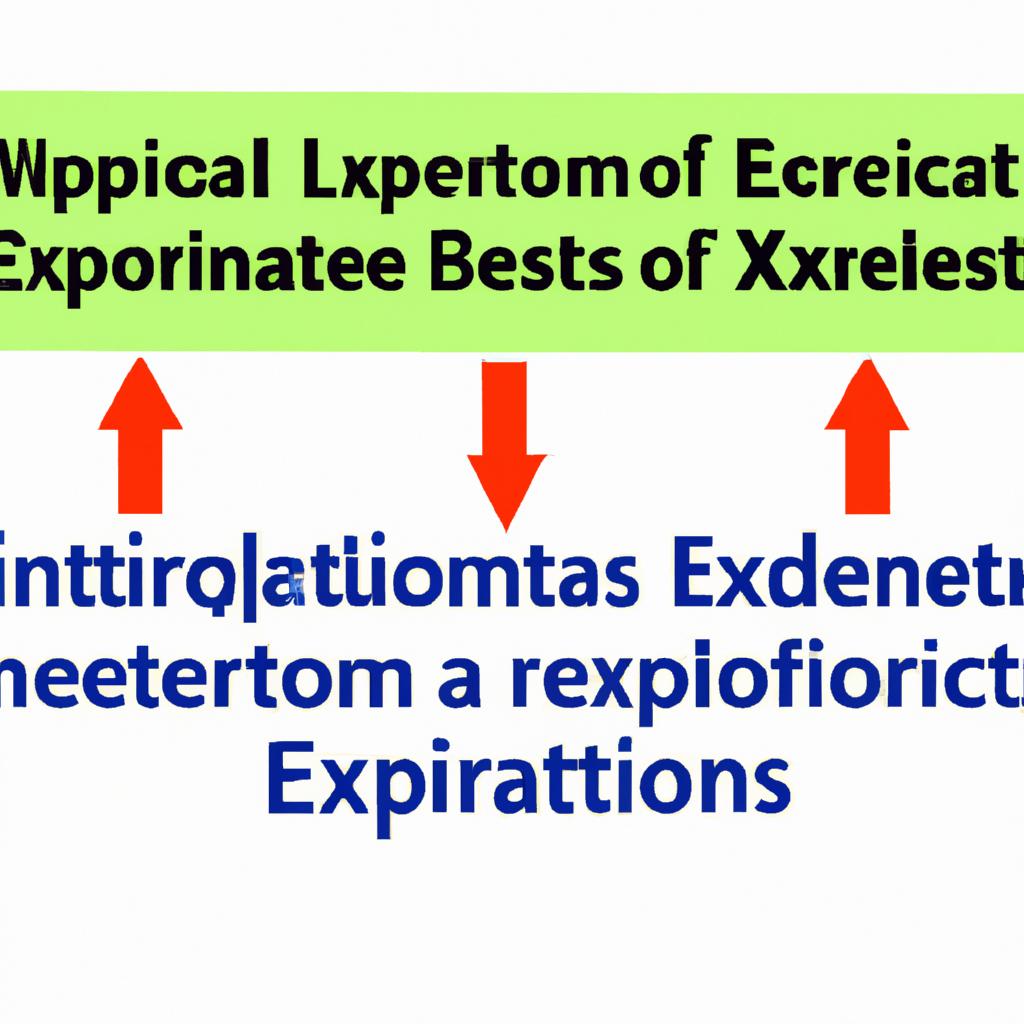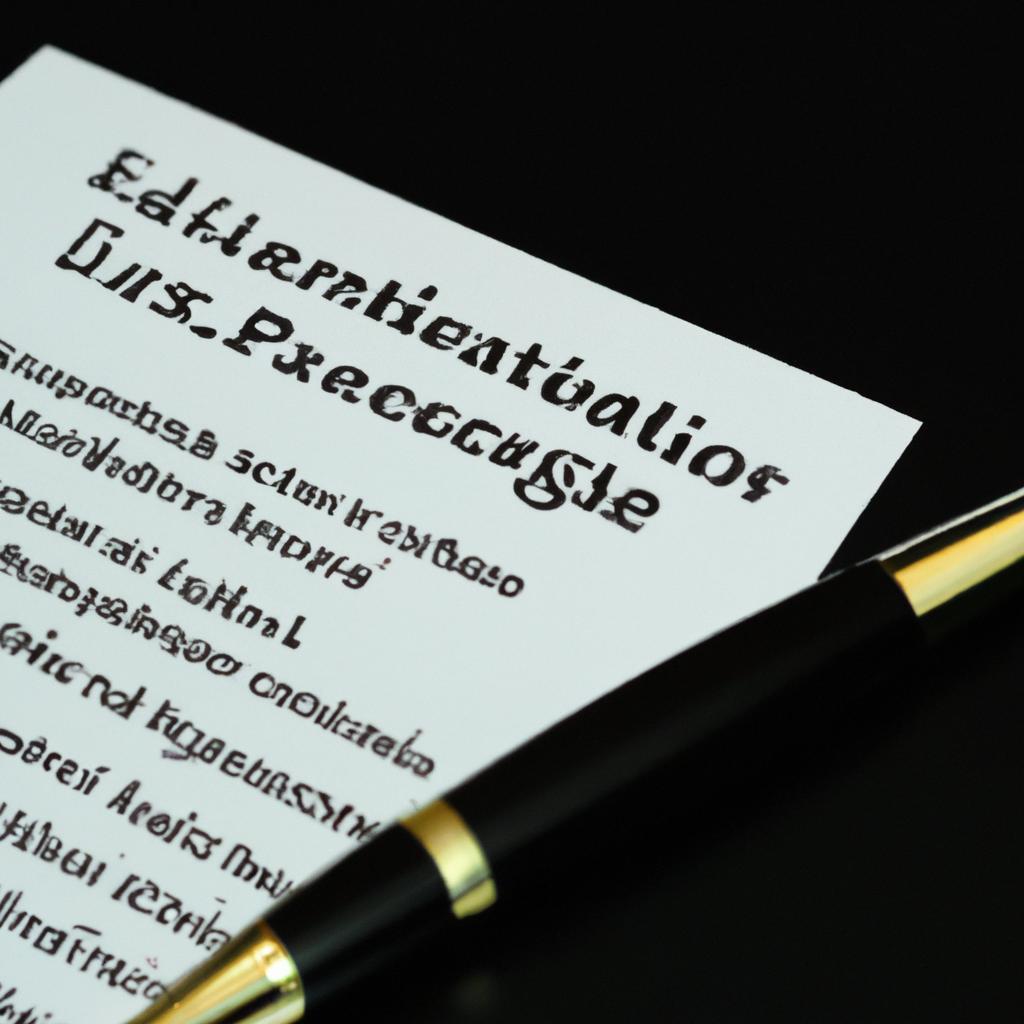In the intricate realm of estate planning, the appointment of executors is a crucial element in ensuring the orderly administration of one’s affairs upon incapacity or death. As seasoned practitioners in the field of estate law, at Morgan Legal Group in New York City, we often encounter the question: how many executors can one have? Delving into this issue requires a keen understanding of the legal framework surrounding executorship and the implications of appointing multiple individuals to carry out the responsibilities of this role. Join us as we navigate the complexities of this topic to shed light on the optimal number of executors for your estate planning needs.
Determining the Ideal Number of Executors for Your Estate
When it comes to , it is important to consider various factors to ensure a smooth and efficient administration process. While there is no set limit on the number of executors you can have, it is generally recommended to keep the number to a minimum to avoid potential conflicts or delays in decision-making.
Having multiple executors can be beneficial in certain situations, such as when you have a large or complex estate that requires expertise in different areas. However, it is essential to choose individuals who can work well together and communicate effectively to prevent any disputes. Ultimately, the decision on the number of executors should be based on the size and complexity of your estate, as well as the relationships between the chosen individuals.

Key Considerations When Selecting Executors for Your Estate
When selecting executors for your estate, it is important to consider how many individuals you want to appoint to fulfill this role. While there is no set limit on the number of executors you can have, it is typically recommended to keep the number to a manageable size. Having too many executors can complicate decision-making and lead to conflicts, while having too few may result in a lack of oversight and accountability.
It is common to appoint 1-3 executors to manage your estate, but the optimal number will depend on the complexity of your assets, the relationships between the executors, and your personal preferences. Consider the following factors when determining how many executors to select:
- Skills and expertise required to manage your estate
- Geographic location of executors
- Availability and willingness to serve as an executor

The Potential Benefits of Appointing Multiple Executors
When it comes to estate planning, the decision of how many executors to appoint can be a crucial one. While many people opt for a single executor to handle their affairs after they pass away, there are actually several potential benefits to appointing multiple executors.
One benefit of appointing multiple executors is that it can help ensure that your wishes are carried out accurately. By having more than one person overseeing the administration of your estate, you can reduce the risk of errors or oversights. Additionally, appointing multiple executors can help distribute the workload and responsibilities, making the process more manageable for all parties involved. Finally, having multiple executors can provide added protection against potential conflicts of interest or abuse of power, as the decision-making process will involve multiple individuals rather than just one.

Navigating Legal Requirements and Practical Considerations for Multiple Executors
When it comes to appointing multiple executors for your estate, there are several legal requirements and practical considerations to keep in mind. It is important to understand the limitations and responsibilities that come with having multiple individuals serve as executors of your will. Here are some key points to consider:
1. **Legal Requirements**
- Some states limit the number of executors you can appoint in a will.
– Each executor must be over the age of 18 and of sound mind.
- Executors must be able to work together cohesively to ensure the efficient administration of the estate.
- Practical Considerations
- Consider the geographical location of each executor and their ability to fulfill their duties effectively.
- Think about the complexity of your estate and whether multiple executors are necessary to handle various aspects of the administration.
- Be mindful of potential conflicts of interest among executors and ensure that all parties are able to act in the best interests of the estate.
Q&A
Q: How many executors can you have for your estate?
A: You can have as many executors as you wish, but it is recommended to have no more than four to avoid complications in decision-making.
Q: Can co-executors be appointed?
A: Yes, it is possible to appoint co-executors to share the responsibilities of handling the estate. However, it is important to ensure that all co-executors are able to work together and make decisions jointly.
Q: What happens if there are disagreements among the executors?
A: If there are disagreements among the executors, it can delay the probate process and cause additional stress for all parties involved. It is important to try to resolve any disputes amicably or seek legal assistance if necessary.
Q: Can an executor be removed or replaced?
A: In certain circumstances, an executor can be removed or replaced if they are unable or unwilling to fulfill their duties. This process typically involves a court petition and may require evidence of misconduct or incompetence.
Q: Is it better to have a single executor or multiple executors?
A: The decision to have a single executor or multiple executors depends on the complexity of the estate and the dynamics of the individuals involved. In some cases, it may be more efficient to have a single executor, while in others, multiple executors can provide a checks-and-balances system.
Q: What qualifications should executors have?
A: Executors should have a strong understanding of financial and legal matters, as well as the ability to communicate effectively and make sound decisions under pressure. It is also important for executors to be trustworthy, organized, and capable of handling potentially emotional situations.
Concluding Remarks
In conclusion, the number of executors you can have ultimately depends on the complexity of your estate and your personal preferences. Whether you choose to have one executor or a team of executors, it is important to carefully consider your decision and ensure that those appointed are trustworthy and capable of carrying out your wishes. Remember, the role of an executor is a crucial one, so choose wisely to ensure a smooth and successful administration of your estate. Thank you for reading!


